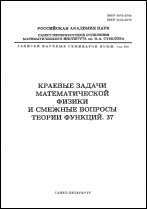|
|
Zapiski Nauchnykh Seminarov POMI, 2023, Volume 528, Pages 116–133
(Mi znsl7406)
|
 |
|
 |
Cooperative envy-free division
D. Jojića, G. Paninabc, R. Živaljevićd
a Faculty of Science, University of Banja Luka
b St. Petersburg State University
c St. Petersburg Department of Steklov Mathematical Institute
d Mathematical Institute of the Serbian Academy of Sciences and Arts (SASA), Belgrade
Abstract:
Relying on configuration spaces and equivariant topology, we study a general “cooperative envy-free division problem” where the players have more freedom of expressing their preferences (compared to the classical setting of the Stromquist-Woodall-Gale theorem).
A group of players want to cut a “cake” $I=[0,1]$ and divide among themselves the pieces in an envy-free manner. Once the cake is cut and served in plates on a round table (at most one piece per plate), each player makes her choice by pointing at one (or several) plates she prefers. The novelty is that her choice may depend on the whole allocation configuration. In particular, a player may choose an empty plate (possibly preferring one of the empty plates over the other), and take into account not only the content of her preferred plate, but also the content of the neighbouring plates.
We show that if the number of players is a prime power, in this setting an envy-free division still exists under standard assumptions that the preferences are closed.
Key words and phrases:
envy-free division, configuration space/test map scheme.
Received: 16.10.2023
Citation:
D. Jojić, G. Panina, R. Živaljević, “Cooperative envy-free division”, Representation theory, dynamical systems, combinatorial methods. Part XXXV, Zap. Nauchn. Sem. POMI, 528, POMI, St. Petersburg, 2023, 116–133
Linking options:
https://www.mathnet.ru/eng/znsl7406 https://www.mathnet.ru/eng/znsl/v528/p116
|

| Statistics & downloads: |
| Abstract page: | 71 | | Full-text PDF : | 24 | | References: | 22 |
|




 Contact us:
Contact us: Terms of Use
Terms of Use
 Registration to the website
Registration to the website Logotypes
Logotypes








 Citation in format
Citation in format 